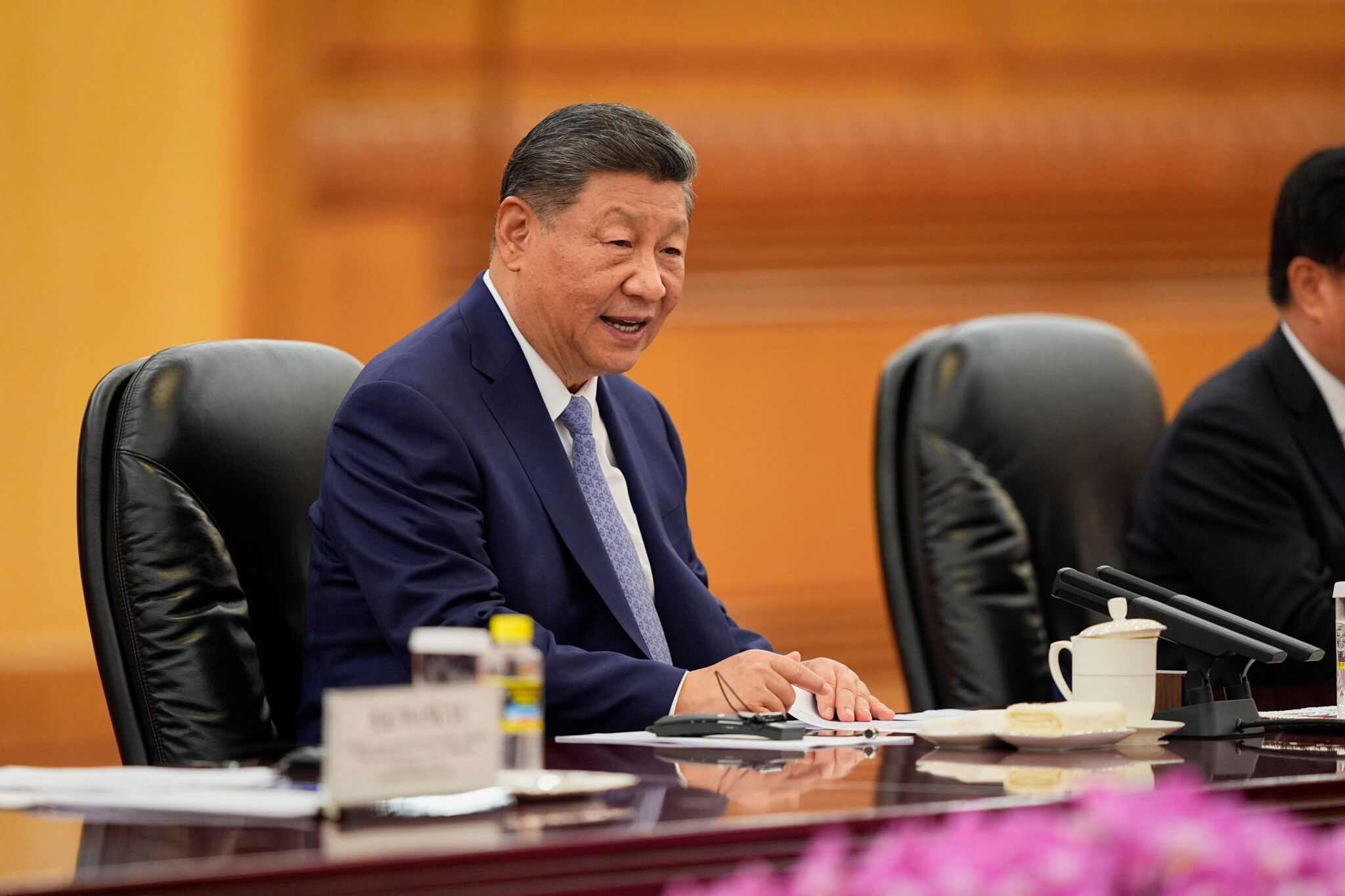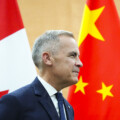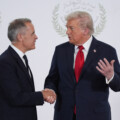Before the end of the month, Prime Minister Mark Carney may meet with Chinese President Xi Jinping. The possibility comes as Canada grapples with escalating trade disputes with China, including punitive tariffs on canola exports worth billions to Canadian farmers.
The potential diplomatic engagement occurs against a backdrop of broader concerns about Chinese economic coercion, national security risks, and Canada’s strategic positioning between two rival world superpowers in U.S. and China. The Hub spoke with Charles Burton, a China expert and former diplomat, to better understand the complex dynamics at play.
Here are five key takeaways from the conversation:
- China is using economic coercion to pressure Canada on trade policy: Burton says Beijing has imposed arbitrary tariffs on Canadian canola exports—a $12 billion annual industry—in retaliation for Canada’s 100 percent tariff on Chinese EVs (electric vehicles).
- Chinese EVs pose potential national security risks beyond just economic competition: These vehicles could serve as surveillance tools and contain software that could be remotely disabled during conflicts, similar to concerns raised about Huawei telecommunications equipment.
- Any trade concessions to China will likely require sacrifices: Beijing expects Canada to “set aside differences” on issues like espionage investigations, a promised foreign agent registry, and support for Taiwan in exchange for market access.
- China views Canada primarily as a raw materials supplier within its global strategy: Beijing’s approach aligns with Xi Jinping’s vision of remaking the world order, with China as the dominant civilizational force by 2050.
- Xi Jinping now faces irregular internal challenges from China’s military leadership: Nine top military officials have been removed this month, suggesting potential concerns about China’s economic decline under Xi’s policies.
China is using economic coercion to pressure Canada on trade policy
The canola tariffs exemplify how China leverages economic relationships for political purposes, says Burton.
“There are 40,000 prairie farmers involved in the production of canola seeds, and it’s a $12 billion a year business,” Burton explained. “Last year, before China imposed these punitive tariffs, we sold over $4 billion to China.”
The tariffs came in direct response to Canada’s decision to impose 100 percent tariffs on Chinese EVs, which Burton noted was necessary because “China heavily subsidizes these things, and so they would devastate our own market if they came into Canada.”
However, Burton warned that resolving the canola issue wouldn’t solve the underlying problem of China’s record of acting in bad faith on the trade file.
“When you have a country that doesn’t respect the agreements and falsifies some reasons for barring Canadian products from the Chinese market, it’s sort of like whack-a-mole,” he said.
Chinese EVs pose a potential national security risk beyond economic competition
Beyond unfair competition concerns, Burton highlighted significant security risks associated with Chinese electric vehicles.
“They gather a terrific amount of information of where they go and on the people who are driving them,” he explained, drawing parallels to Huawei, a Chinese company banned from being a part of Canada’s 5G infrastructure over security concerns
Burton even suggested the security concerns could create complications with the United States, recounting how an American pundit suggested President Trump might stop Chinese EVs at the border if they tried to enter the U.S. The U.S currently bars nearly all Chinese cars and trucks.
Any trade concessions to China will likely require sacrifices
Burton emphasized that China won’t just provide market access without expecting political concessions in return.
“China’s not going to give us a promise of further access to their market unless we’re going to give them something back,” he said.
Beijing’s demands include what they call seeking “common ground while setting aside differences.” This, says Burton, translates to China making Canada stop pursuing Chinese espionage cases, avoid implementing the Foreign Influence Transparency Registry established under Bill C-70, cease freedom of navigation exercises in the South China Sea, and end its support for Taiwan.
China views Canada primarily as a raw materials supplier within its global strategy
Burton explained that China’s approach to Canada fits within Xi Jinping’s broader vision of global dominance.
“China, I think, would like us to be a supplier of raw materials for China. They’d like access to our northern resources,” he explained.
This aligns with what Burton described as Xi’s “Community of Common Destiny for mankind.” He described this as a remaking of the world order, predicated on his assumption that the United States is a power in decline and that the institutions that support the rules-based international order, the WTO and the UN, will fade into irrelevance as China becomes the dominant civilizational force on the planet [by 2050].”
“China is an integrated party state, industrial military complex,” where everything is coordinated by the Chinese Communist Party (CCP), making their approach comprehensive and long-term focused.
Xi Jinping now faces irregular internal challenges from his military leadership
Despite his consolidation of power, Xi faces unprecedented internal resistance.
“Since the past three years, the three top uniform members of the Chinese Communist Party Central Military Commission have been removed. That’s very irregular,” Burton observed.
What makes this particularly significant is that many of those removed “were appointed by Xi Jinping relatively recently. Burton suggested this reflects “concern in the military about the economic decline of China under Mr. Xi’s policies.”
While acknowledging uncertainty about timing, Burton noted the broader implications.
“Whether Mr. Xi is able to contain this or whether there’s a general erosion of the system which could lead to his removal from power remains to be seen.”
In 2018, Xi abolished presidential term limits, allowing him to ostensibly stay in office indefinitely.
This commentary draws on a Hub podcast. It was edited using AI. Full program here.
Should Canada prioritize trade with China despite national security concerns?
What political sacrifices might Canada need to make for better trade relations with China?
How does China's view of Canada fit into Xi Jinping's global ambitions?











Comments (0)